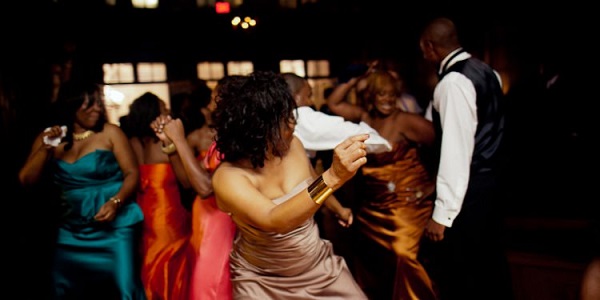Planning a wedding is an exciting journey—one filled with love, dreams, and meticulous preparation. For Nigerians in the diaspora, blending cultural expectations with their new realities can be both thrilling and challenging.
As you budget for the venue, food, and attire, there are often overlooked or underestimated expenses that can strain your finances if not planned for. These “hidden” costs, while not always immediately apparent, can have a significant impact on your big day. Here are the top ten hidden wedding costs to consider as a Nigerian in the diaspora:
1. Traditional Wedding Logistics
For many Nigerians, the traditional wedding is as important as the white wedding. Organizing a traditional ceremony from abroad often involves additional costs such as shipping traditional attires, purchasing cultural items like kola nuts, and hiring cultural musicians or performers. Moreover, if you’re planning to host the traditional wedding in Nigeria, travel expenses for you and your close family members can add up quickly.
Pro Tip: Start early by liaising with family members back home to help with procurement. Also, consider hiring a local wedding planner who understands the cultural nuances and can manage costs effectively.
2. Currency Exchange Rates and Transfer Fees
If you’re paying for services or goods in Nigeria while earning in a foreign currency, fluctuating exchange rates can significantly impact your budget. Banks and money transfer services often charge fees that can quickly add up, especially if you’re making multiple transactions.
Pro Tip: Monitor exchange rates and use transfer services with lower fees, such as Wise (formerly TransferWise) or PayPal’s Xoom. You can also consolidate payments to minimize transaction fees.
3. Guest Accommodation and Transportation
As a Nigerian in the diaspora, many of your guests may be traveling from different parts of the world or within Nigeria to attend your wedding. Providing accommodation, especially for close relatives, can become a significant expense. Additionally, arranging transportation to and from the venue may also fall on your shoulders.
Pro Tip: Negotiate group rates with hotels and consider providing shuttle services for guests to reduce individual transportation costs.
4. Wedding Favors and Souvenirs
Nigerian weddings are famous for their elaborate souvenirs, from custom-printed tote bags to beautifully designed mugs and fans. While these items might seem like minor expenses, the cost can escalate when catering to a large guest list.
Pro Tip: Choose practical and affordable souvenirs that guests will appreciate. Opt for items that can be sourced locally or ordered in bulk to save on shipping.
5. Cultural Attire for the Couple and Family
The couple’s attire is often one of the highlights of a Nigerian wedding. However, outfitting close family members in coordinated traditional wear can be a hidden cost. This expense often extends to fabric purchase, sewing fees, and even accessories.
Pro Tip: Source high-quality but affordable fabrics and engage a tailor who offers bulk discounts. Alternatively, consider pre-made options for family members to cut costs.
6. Photography and Videography
While many couples prioritize capturing their big day, the true cost of wedding photography and videography can be surprising. Beyond the base package, there are add-ons like photo albums, drone shots, and highlight reels that can inflate costs.
Pro Tip: Clearly outline your expectations with the photographer and videographer to avoid unexpected charges. You can also ask for customized packages that suit your budget.
7. Post-Wedding Events
In Nigerian culture, weddings are rarely just a one-day affair. You may need to budget for events like a thanksgiving service, an after-party, or even a farewell brunch. These additional celebrations often come with their own costs for food, drinks, and entertainment.
Pro Tip: Plan these events on a smaller scale and consider hosting them at home to save on venue and catering expenses.
8. Vendor Overtime Fees
Your wedding day is unpredictable, and events may run longer than planned. Many vendors, including photographers, DJs, and caterers, charge overtime fees if the event extends beyond the agreed-upon timeframe.
Pro Tip: Build extra time into your contract with vendors or negotiate a flat-rate overtime fee upfront to avoid surprises.
9. Marriage Documentation and Legal Fees
For Nigerians in the diaspora, ensuring that your marriage is legally recognized in both your country of residence and Nigeria can involve additional costs. This might include translating documents, paying for affidavits, or registering your marriage at the Nigerian embassy.
Pro Tip: Research the legal requirements well in advance and allocate funds specifically for this purpose. Hiring a lawyer or consultant familiar with international marriage laws can also save time and prevent errors.
10. Gifts for Key Helpers
It’s customary in Nigerian culture to appreciate those who have played significant roles in your wedding, such as the bridal party, parents, or close friends. These gifts, while heartfelt, can be an unexpected expense if not budgeted for.
Pro Tip: Opt for meaningful but affordable gifts. Personalized items often make a lasting impression without breaking the bank.
Conclusion
While planning a wedding as a Nigerian in the diaspora comes with its unique challenges, being aware of these hidden costs can help you prepare better and avoid last-minute financial stress. The key is to prioritize, negotiate, and stay organized. Remember, the essence of your wedding day lies in celebrating love and unity with your partner, family, and friends. With careful planning, you can create a memorable experience that stays within budget.












